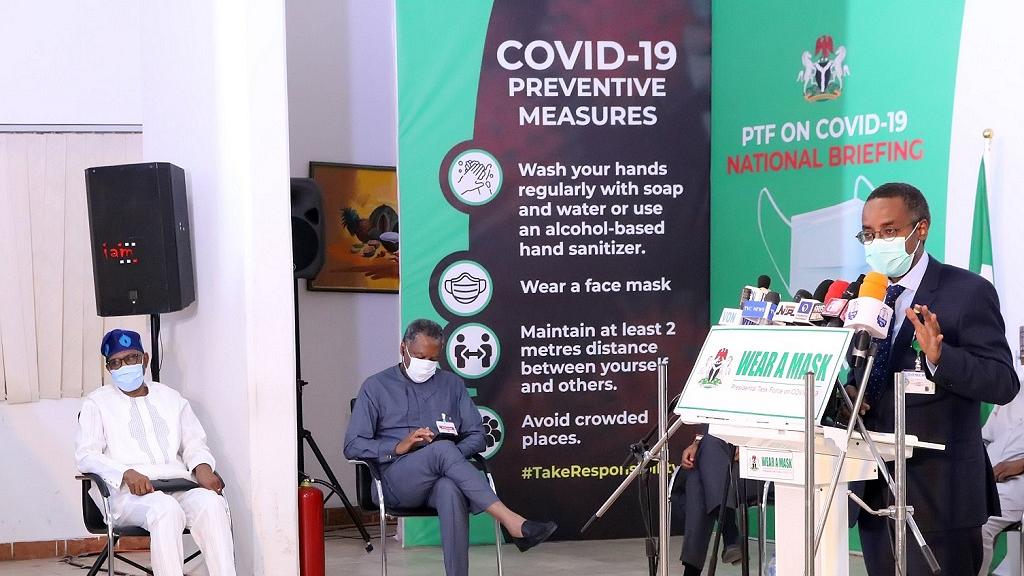
Nigeria’s COVID-19 cases top 48,000 as government vows stronger response
The number of COVID-19 cases in Nigeria has topped 48,000 as the government vows to take a full response strategy.
A total of 48,445 confirmed cases were reported in the country by the Africa Centers for Disease Control and Prevention (Africa CDC) on Saturday morning.
The number of deaths related to the novel coronavirus has reached 973, with recoveries standing at 35,998, according to the Africa CDC data.
Lagos, Nigeria’s commercial hub, where the country’s index case was reported on February 27, has remained the epicenter of COVID-19, with about one third of the national total.

A multi-sectoral national emergency operations center activated at Level 3 has continued to coordinate the national response activities across the country.
However, the government said more is needed to combat and ultimately manage the COVID-19 spread.
The Presidential Task Force (PTF) on COVID-19 said it is working with partners to implement a comprehensive and aggressive engagement response to the pandemic in the country.
Sani Aliyu, coordinator of the PTF on COVID-19, told reporters in Abuja on Thursday that in the course of this implementation, authorities have come across a lot of disbelief, apathy, and fatigue, which hampers compliance and behaviour change among Nigerians.
“We recognize that behaviour change takes time, and if we are to implement a multi-pronged strategy, particularly working with risk communication and community engagement pillar, we should be able to address some of these challenges,” Aliyu said.
According to him, in the area of risk communication, the task force has continued to communicate messages and the reasoning behind non-pharmaceutical interventions.
Authorities have published information on testing locations in all states and their phone numbers amid strengthened efforts to enhance community engagement, sensitization and awareness campaigns, Aliyu said.
“There’s a lot of campaign going on the social media and TV stations with sharing the experience of COVID-19 survivors willing to share their stories with us,” he said. “We are grateful for their consent to do so.”
This new approach, he said, is important to helping Nigerians better understand the COVID-19 pandemic.
“Those that will help do this are those who survive the virus because they know it was real,” he added.






